 National Recovery Month, observed every September, is a time dedicated to promoting awareness and understanding of mental health and substance use disorders, celebrating individuals in recovery, and recognizing the work of professionals in the field. The month serves as a beacon of hope for millions, demonstrating that recovery is possible for everyone. It highlights the importance of community involvement, resilience, and support systems in helping people achieve long-term recovery from addiction and mental health challenges. By fostering open conversations and reducing stigma, National Recovery Month helps create an environment where individuals feel encouraged to seek help without judgment.
National Recovery Month, observed every September, is a time dedicated to promoting awareness and understanding of mental health and substance use disorders, celebrating individuals in recovery, and recognizing the work of professionals in the field. The month serves as a beacon of hope for millions, demonstrating that recovery is possible for everyone. It highlights the importance of community involvement, resilience, and support systems in helping people achieve long-term recovery from addiction and mental health challenges. By fostering open conversations and reducing stigma, National Recovery Month helps create an environment where individuals feel encouraged to seek help without judgment.
Talking about National Recovery Month is especially important in rural areas, where access to healthcare services, including mental health and substance use treatment, can be limited. Rural communities often face unique barriers, such as fewer treatment centers, limited transportation options, and a shortage of healthcare professionals trained to handle complex recovery issues. Stigma surrounding addiction and mental health can also be more pronounced in rural areas, where close-knit communities sometimes struggle to maintain privacy and confidentiality. National Recovery Month provides an opportunity to break through these barriers, highlighting the critical need for better resources and support networks in underserved areas.
 Save the Date: 2025 Tennessee Grand Regions Tour
Save the Date: 2025 Tennessee Grand Regions Tour

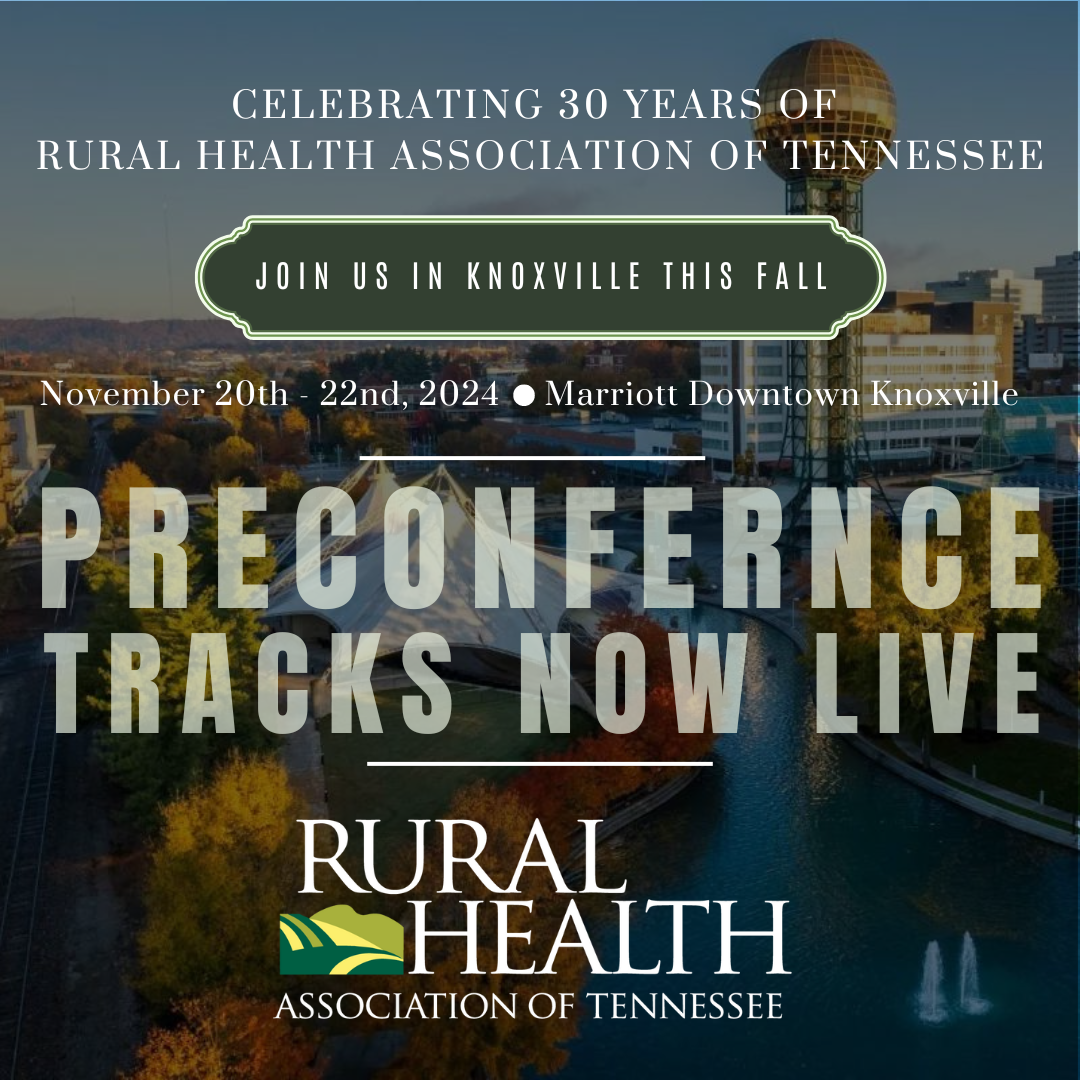 The 30th Annual Conference of the Rural Health Association of Tennessee
The 30th Annual Conference of the Rural Health Association of Tennessee National Recovery Month, observed every September, is a time dedicated to promoting awareness and understanding of mental health and substance use disorders, celebrating individuals in recovery, and recognizing the work of professionals in the field. The month serves as a beacon of hope for millions, demonstrating that recovery is possible for everyone. It highlights the importance of community involvement, resilience, and support systems in helping people achieve long-term recovery from addiction and mental health challenges. By fostering open conversations and reducing stigma, National Recovery Month helps create an environment where individuals feel encouraged to seek help without judgment.
National Recovery Month, observed every September, is a time dedicated to promoting awareness and understanding of mental health and substance use disorders, celebrating individuals in recovery, and recognizing the work of professionals in the field. The month serves as a beacon of hope for millions, demonstrating that recovery is possible for everyone. It highlights the importance of community involvement, resilience, and support systems in helping people achieve long-term recovery from addiction and mental health challenges. By fostering open conversations and reducing stigma, National Recovery Month helps create an environment where individuals feel encouraged to seek help without judgment. Join us for an engaging conversation on how rural communities can lead the way in promoting recovery and resilience. Our panelists will share inspiring stories of progress, discuss barriers hindering recovery readiness, and outline essential steps to create inclusive environments where everyone can flourish in their recovery journey.
Join us for an engaging conversation on how rural communities can lead the way in promoting recovery and resilience. Our panelists will share inspiring stories of progress, discuss barriers hindering recovery readiness, and outline essential steps to create inclusive environments where everyone can flourish in their recovery journey.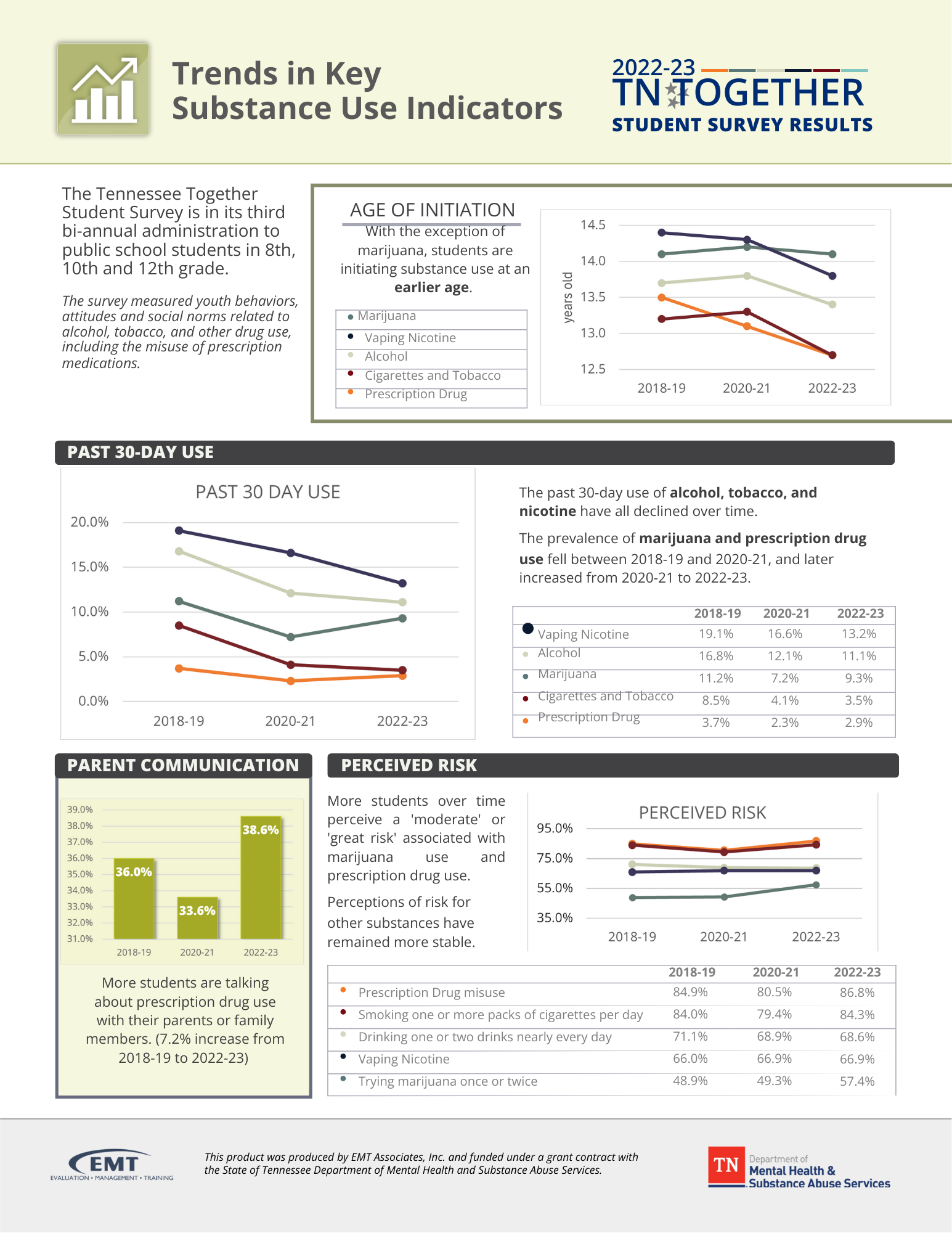 The Tennessee Together Student Survey captures data on youth behaviors, attitudes, and social norms related to substance misuse, emotional wellness, and other risk behaviors among Tennessee 8
The Tennessee Together Student Survey captures data on youth behaviors, attitudes, and social norms related to substance misuse, emotional wellness, and other risk behaviors among Tennessee 8 Have you submitted your nominations for the 2024 Annual Rural Health Awards? Each y
Have you submitted your nominations for the 2024 Annual Rural Health Awards? Each y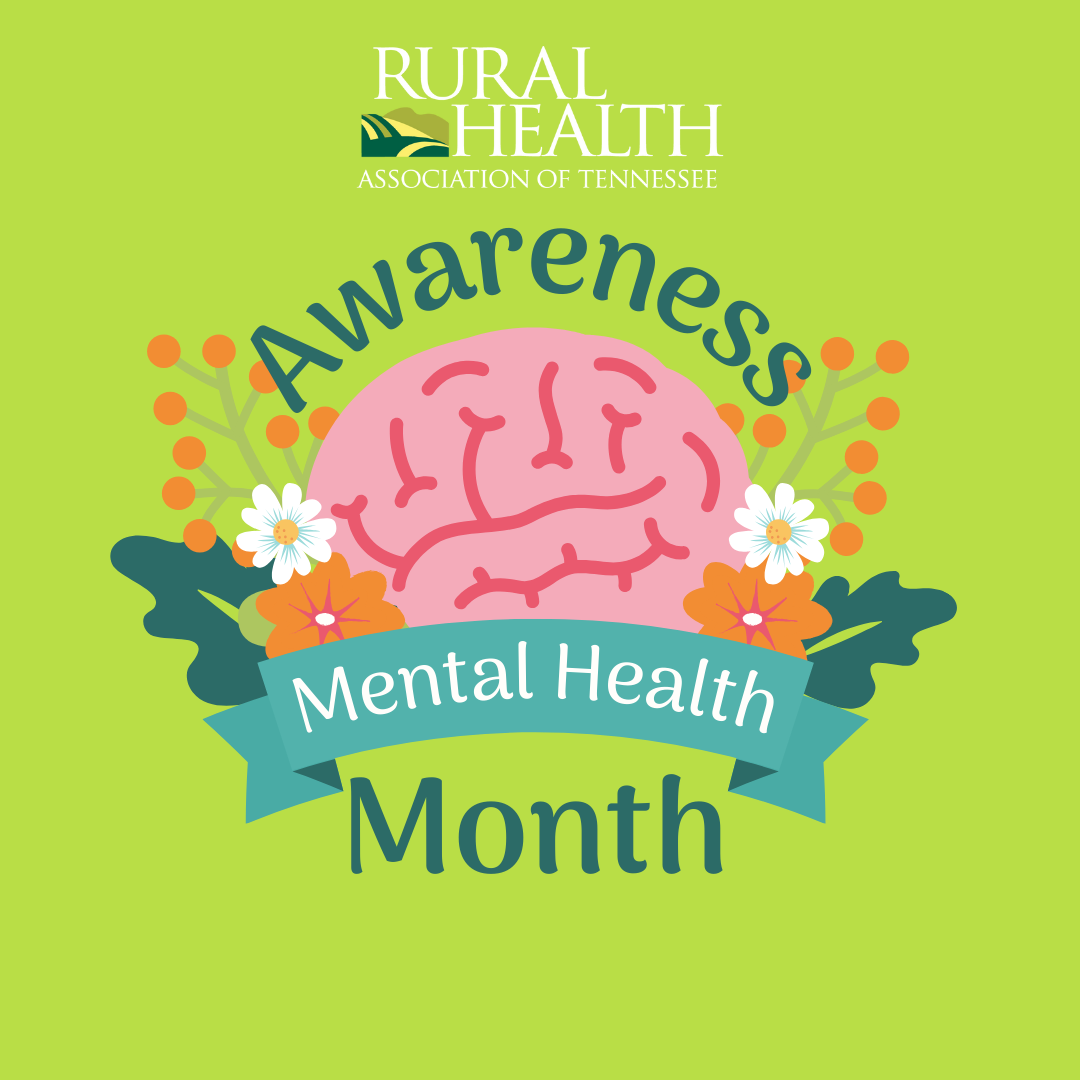 Mental Health Awareness Month, observed throughout May, serves as a crucial platform to educate, raise awareness, and reduce stigma surrounding mental health issues. It offers an opportunity for individuals, communities, and organizations to come together to promote understanding and support for those struggling with mental health challenges.
Mental Health Awareness Month, observed throughout May, serves as a crucial platform to educate, raise awareness, and reduce stigma surrounding mental health issues. It offers an opportunity for individuals, communities, and organizations to come together to promote understanding and support for those struggling with mental health challenges.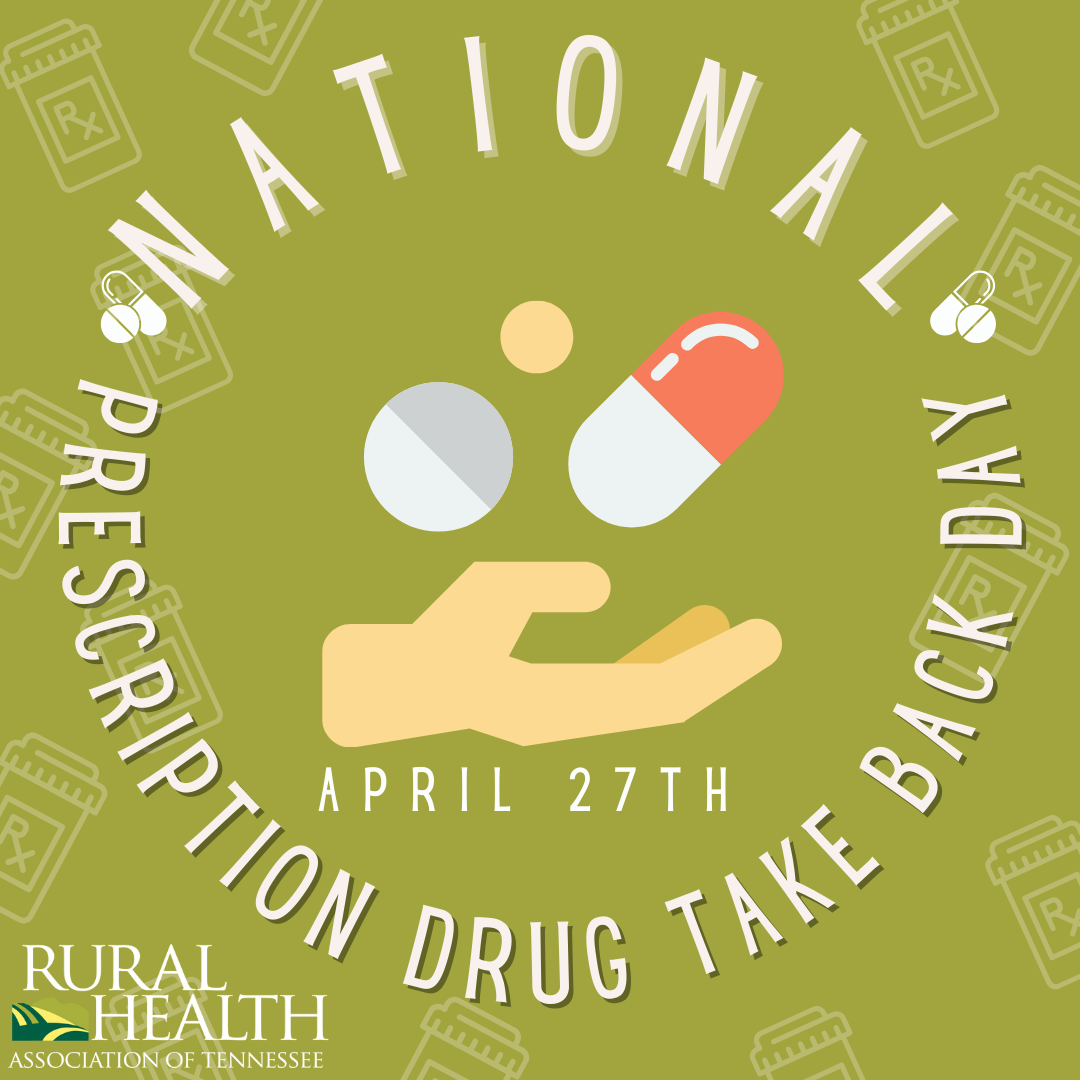 Prescription Drug Takeback Day plays a crucial role in addressing the public health crisis of prescription drug abuse and misuse. Unused or expired prescription medications pose significant risks when left in homes, as they can be accessed by unauthorized individuals, including children, teenagers, and individuals with substance use disorders. Prescription Drug Takeback Day provides a safe and convenient way for individuals to dispose of these medications properly, reducing the likelihood of diversion, accidental ingestion, and environmental contamination.
Prescription Drug Takeback Day plays a crucial role in addressing the public health crisis of prescription drug abuse and misuse. Unused or expired prescription medications pose significant risks when left in homes, as they can be accessed by unauthorized individuals, including children, teenagers, and individuals with substance use disorders. Prescription Drug Takeback Day provides a safe and convenient way for individuals to dispose of these medications properly, reducing the likelihood of diversion, accidental ingestion, and environmental contamination.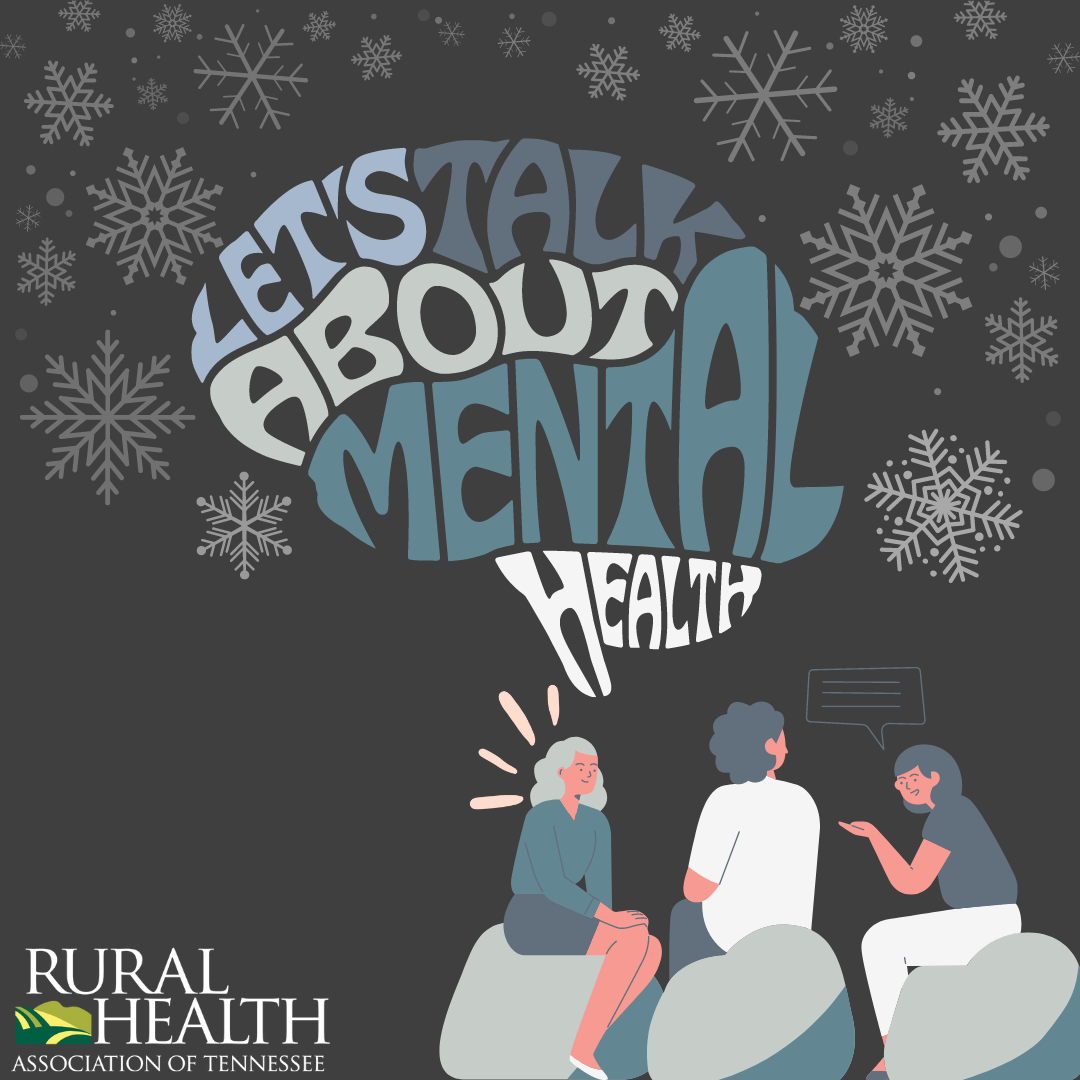 Navigating the winter months with mental health disorders can be particularly challenging due to factors such as reduced sunlight, colder temperatures, and the holiday season. Seasonal Affective Disorder (SAD), a form of depression associated with changes in seasons, often intensifies during winter. To mitigate its effects, individuals can explore light therapy, spending time outdoors during daylight hours, and incorporating light-enhancing activities into their daily routines. Additionally, maintaining a consistent sleep schedule is crucial for stabilizing mood and energy levels, as disruptions to sleep patterns can exacerbate symptoms of various mental health disorders.
Navigating the winter months with mental health disorders can be particularly challenging due to factors such as reduced sunlight, colder temperatures, and the holiday season. Seasonal Affective Disorder (SAD), a form of depression associated with changes in seasons, often intensifies during winter. To mitigate its effects, individuals can explore light therapy, spending time outdoors during daylight hours, and incorporating light-enhancing activities into their daily routines. Additionally, maintaining a consistent sleep schedule is crucial for stabilizing mood and energy levels, as disruptions to sleep patterns can exacerbate symptoms of various mental health disorders.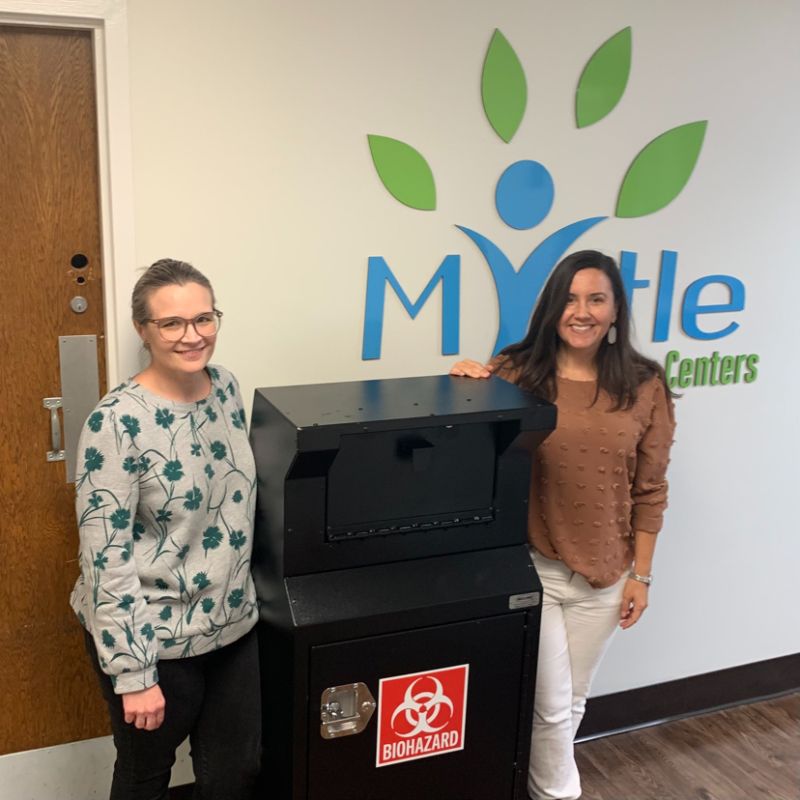
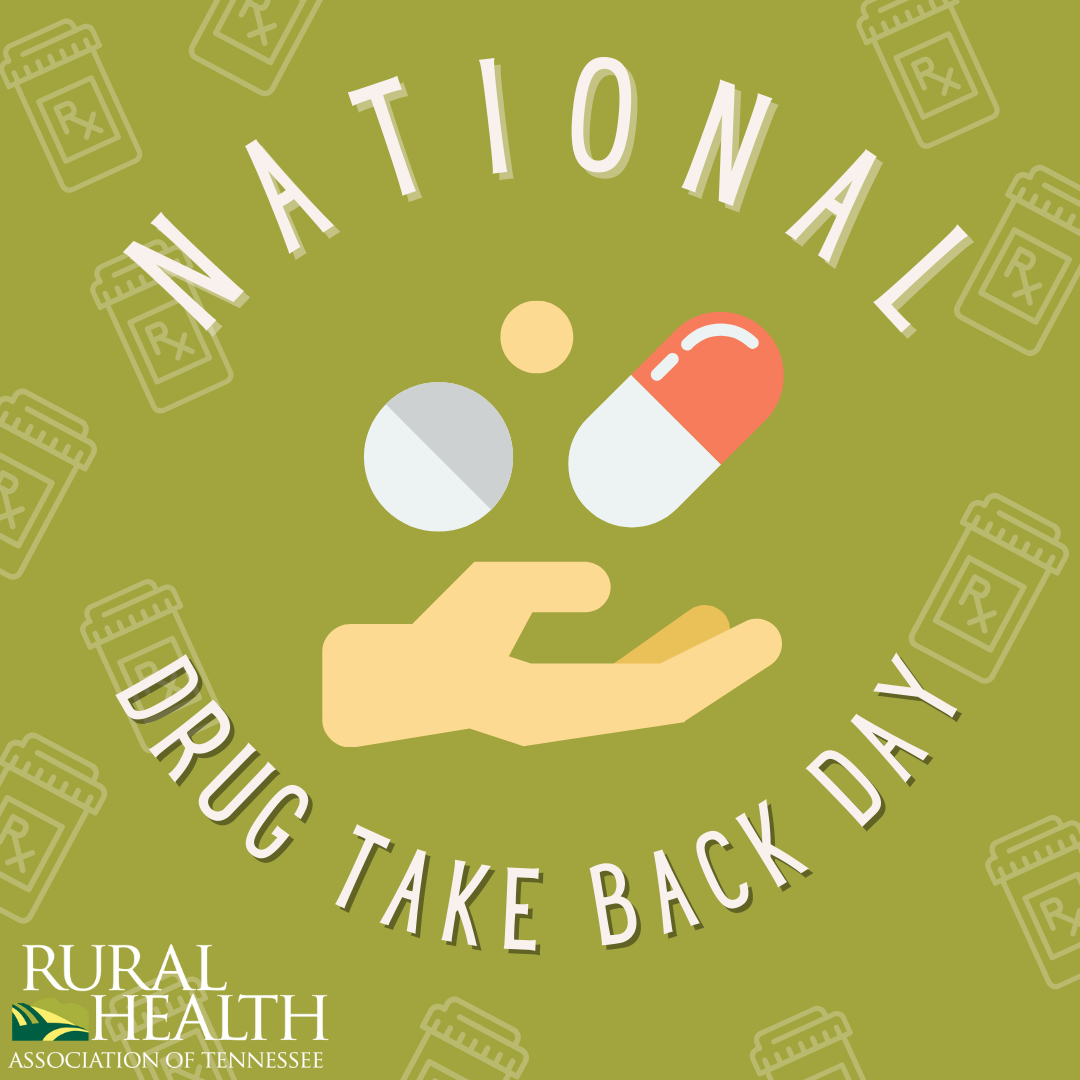 October 28th is recognized as National Drug Take Back Day.
October 28th is recognized as National Drug Take Back Day.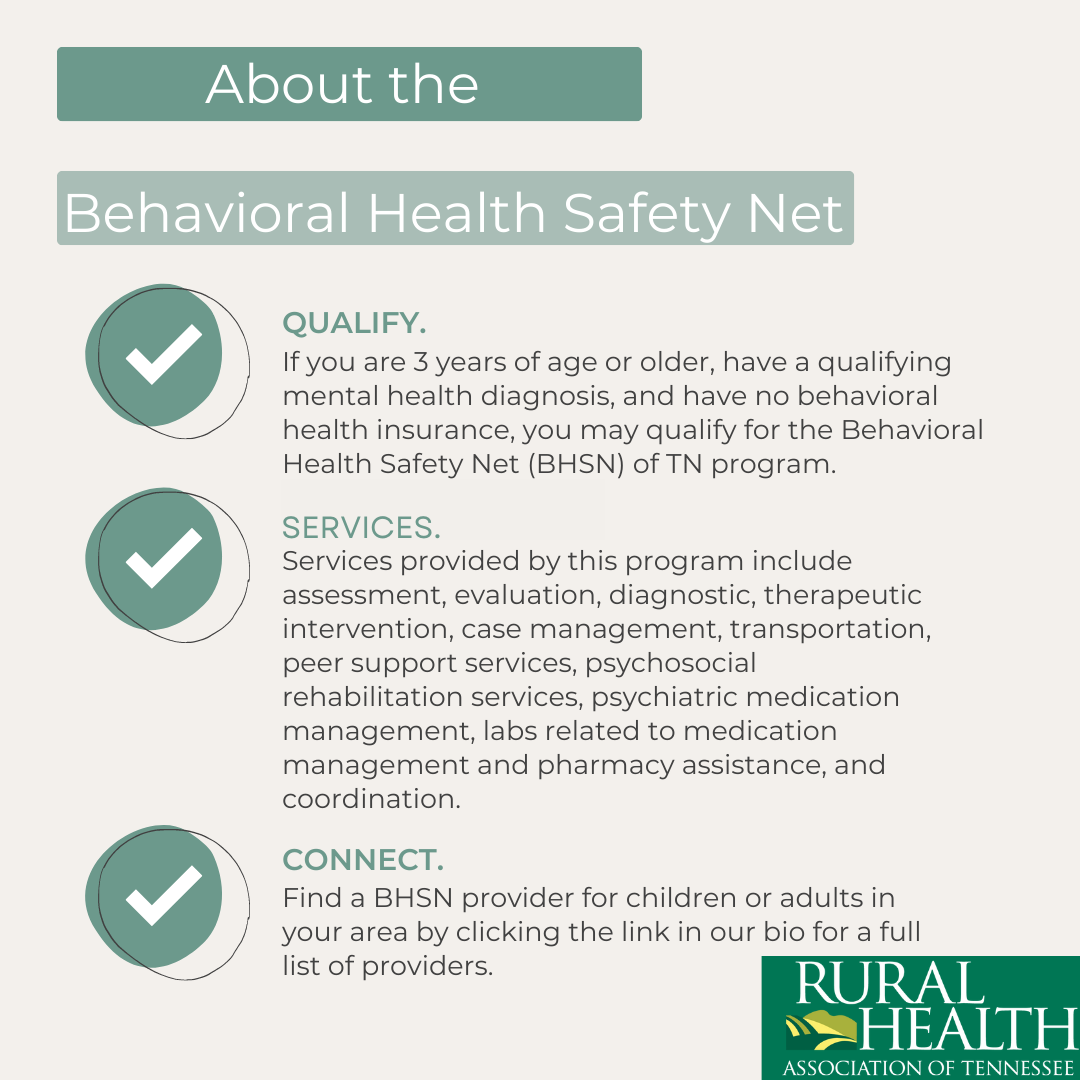 The Behavioral Health Safety Net System in Tennessee, known as BHSN of TN, is a crucial resource for adults aged 18 and older who lack insurance coverage but meet the necessary eligibility criteria. This program offers essential community-based behavioral health services, with the exception of inpatient care, which is not covered. BHSN of TN is effectively administered through contracts with Community Mental Health Agencies statewide.
The Behavioral Health Safety Net System in Tennessee, known as BHSN of TN, is a crucial resource for adults aged 18 and older who lack insurance coverage but meet the necessary eligibility criteria. This program offers essential community-based behavioral health services, with the exception of inpatient care, which is not covered. BHSN of TN is effectively administered through contracts with Community Mental Health Agencies statewide.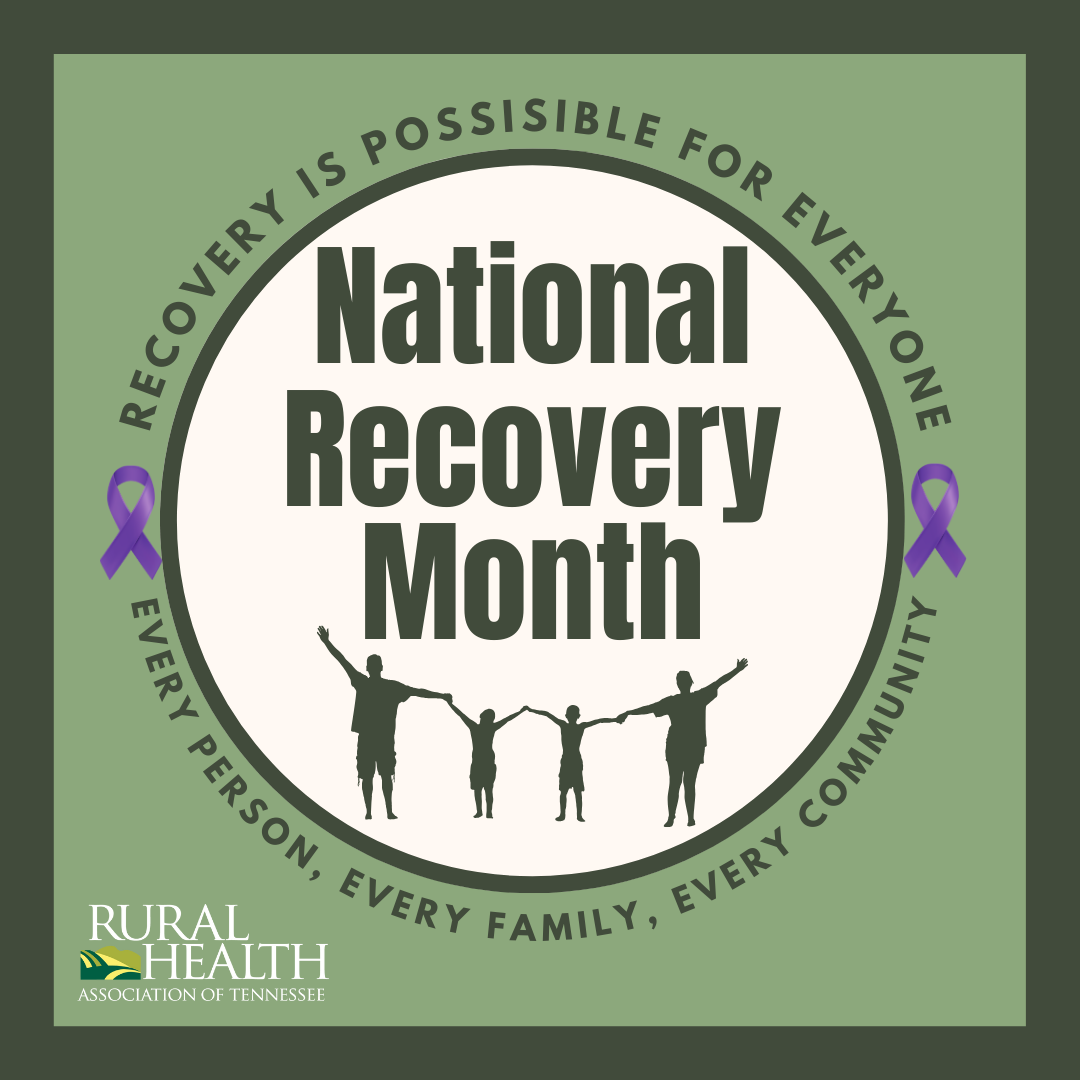 National Recovery Month aims to educate Americans that substance use treatment and mental health services can enable those with a mental and/or substance use disorder to live a healthy and rewarding life.
National Recovery Month aims to educate Americans that substance use treatment and mental health services can enable those with a mental and/or substance use disorder to live a healthy and rewarding life.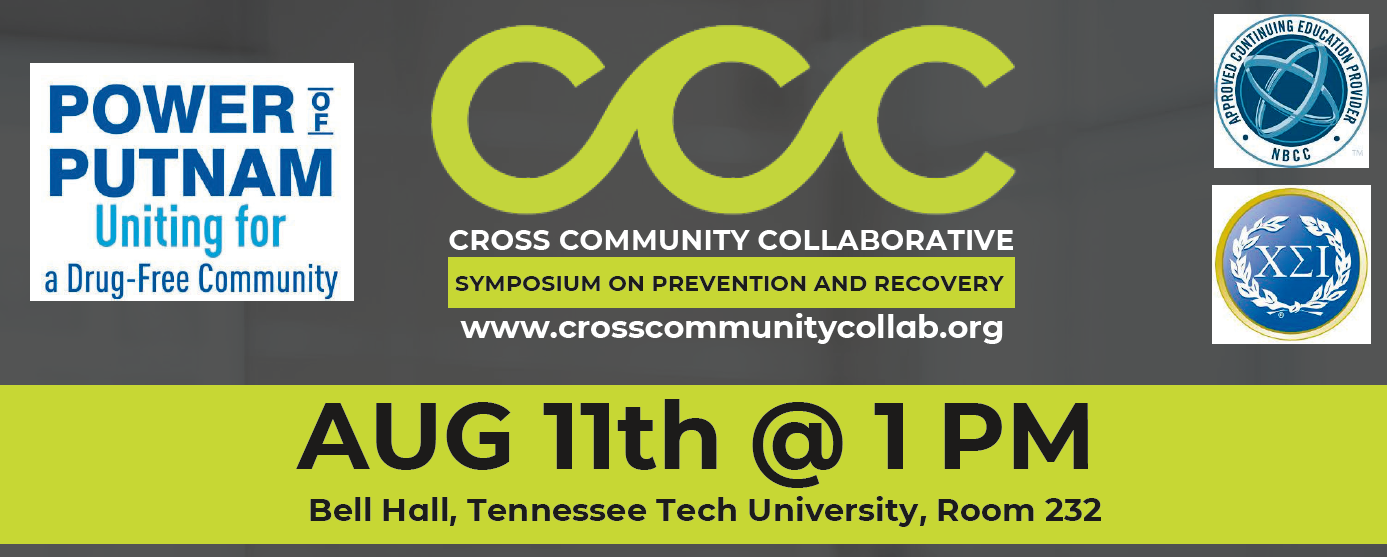
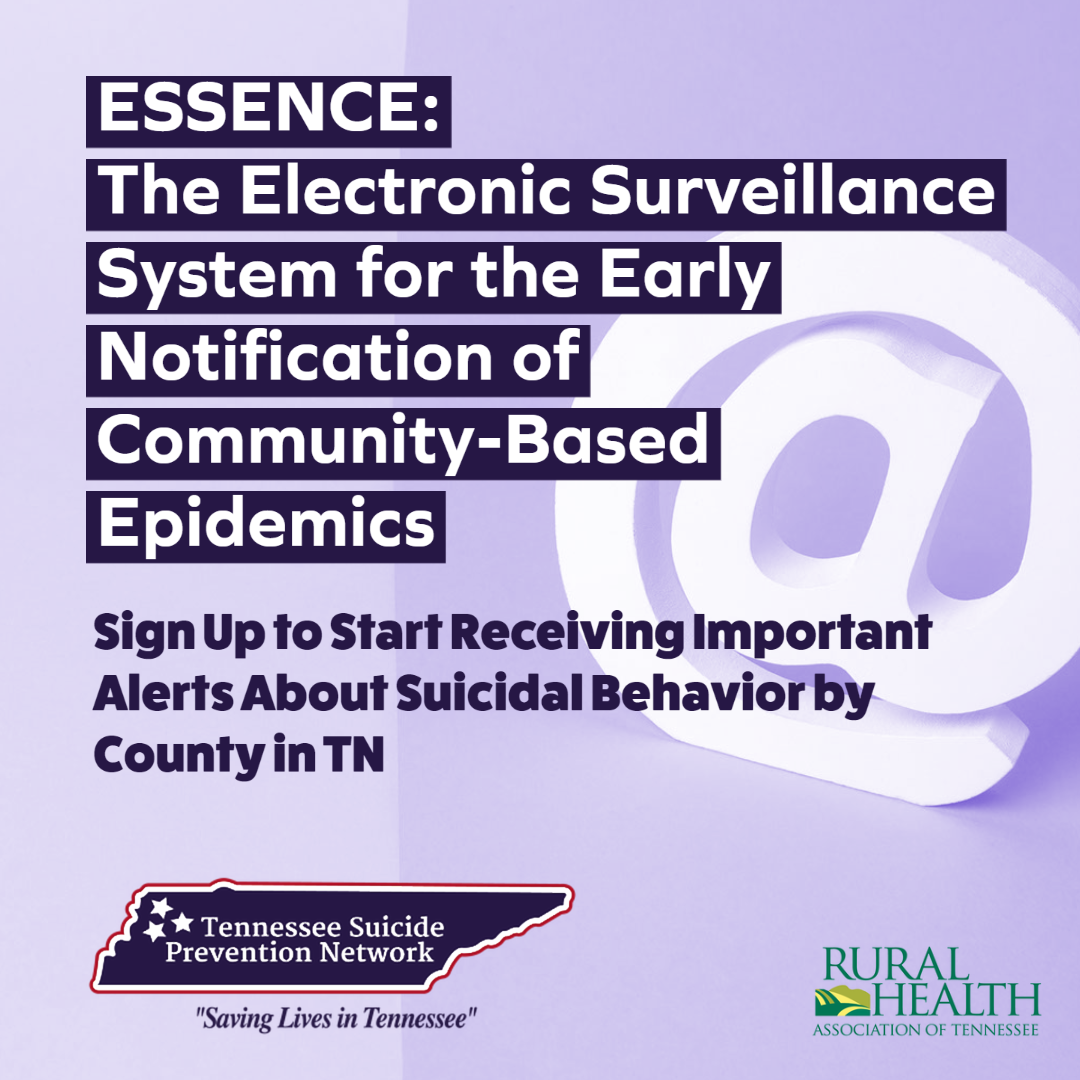 The Electronic Surveillance System for the Early Notification of Community-Based Epidemics (ESSENCE) is a national syndromic surveillance system used to monitor disease trends for early detection of potential disease outbreaks.
The Electronic Surveillance System for the Early Notification of Community-Based Epidemics (ESSENCE) is a national syndromic surveillance system used to monitor disease trends for early detection of potential disease outbreaks.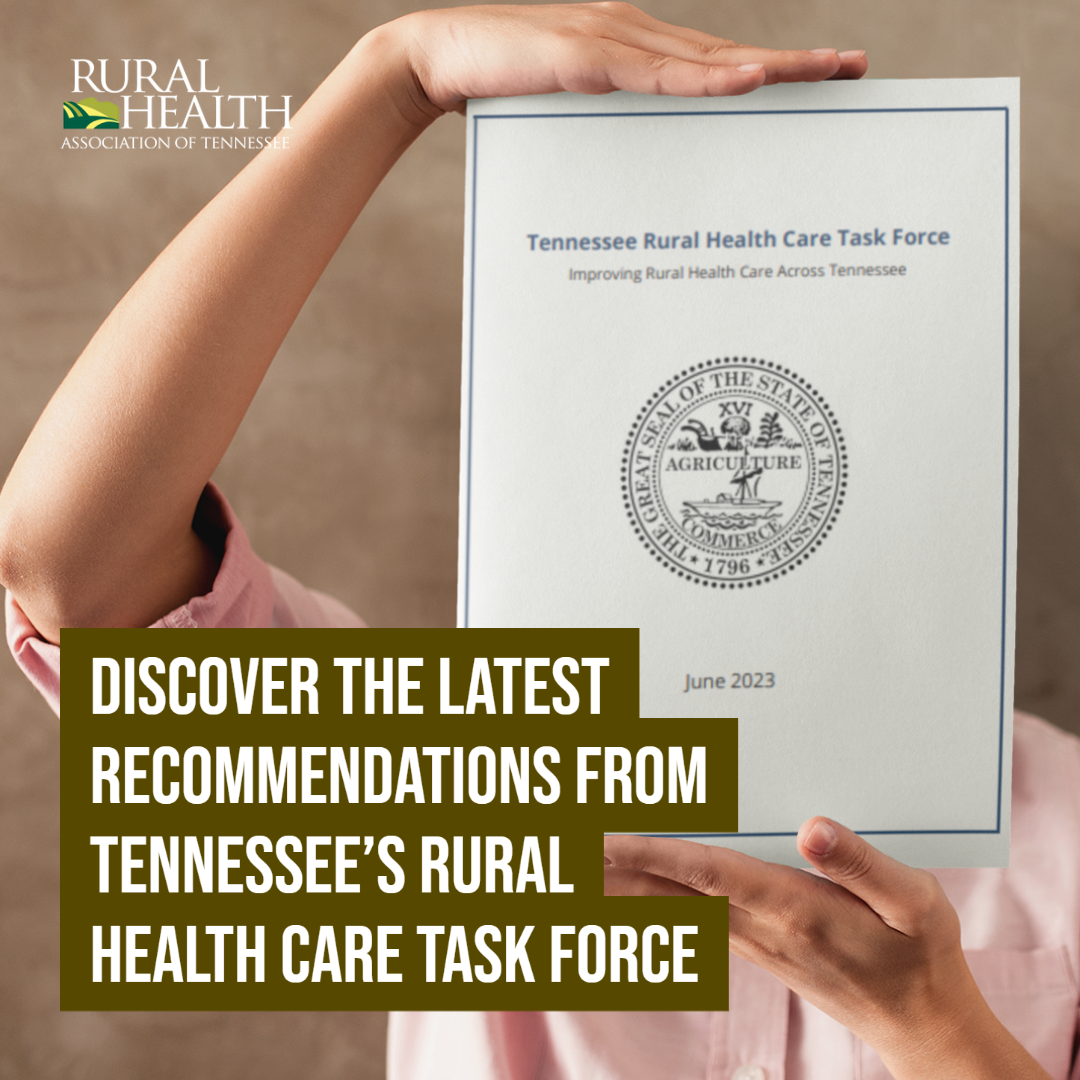 Tennessee's Rural Health Care Task Force, formed in June 2022 by Governor Bill Lee, has released a number of recommendations aimed at improving access to care and health outcomes for rural Tennesseans. In the report are recommendations to increase access to care, train healthcare professionals, and address social drivers of health.
Tennessee's Rural Health Care Task Force, formed in June 2022 by Governor Bill Lee, has released a number of recommendations aimed at improving access to care and health outcomes for rural Tennesseans. In the report are recommendations to increase access to care, train healthcare professionals, and address social drivers of health.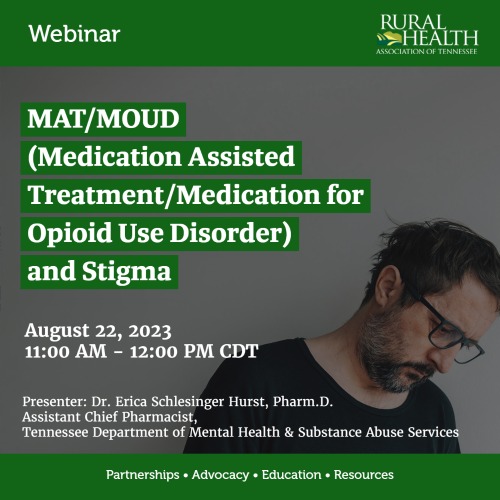 Join RHA and Dr. Erica Schlesinger Hurst, Pharm.D., Assistant Chief Pharmacist with the Tennessee Department of Mental Health & Substance Abuse Services (TDMHSAS) for a virtual training on MAT/MOUD (Medication Assisted Treatment/Medication for Opioid Use Disorder) and Stigma on August 22, 2023, from 11:00 am - 12:00 pm CDT.
Join RHA and Dr. Erica Schlesinger Hurst, Pharm.D., Assistant Chief Pharmacist with the Tennessee Department of Mental Health & Substance Abuse Services (TDMHSAS) for a virtual training on MAT/MOUD (Medication Assisted Treatment/Medication for Opioid Use Disorder) and Stigma on August 22, 2023, from 11:00 am - 12:00 pm CDT. 
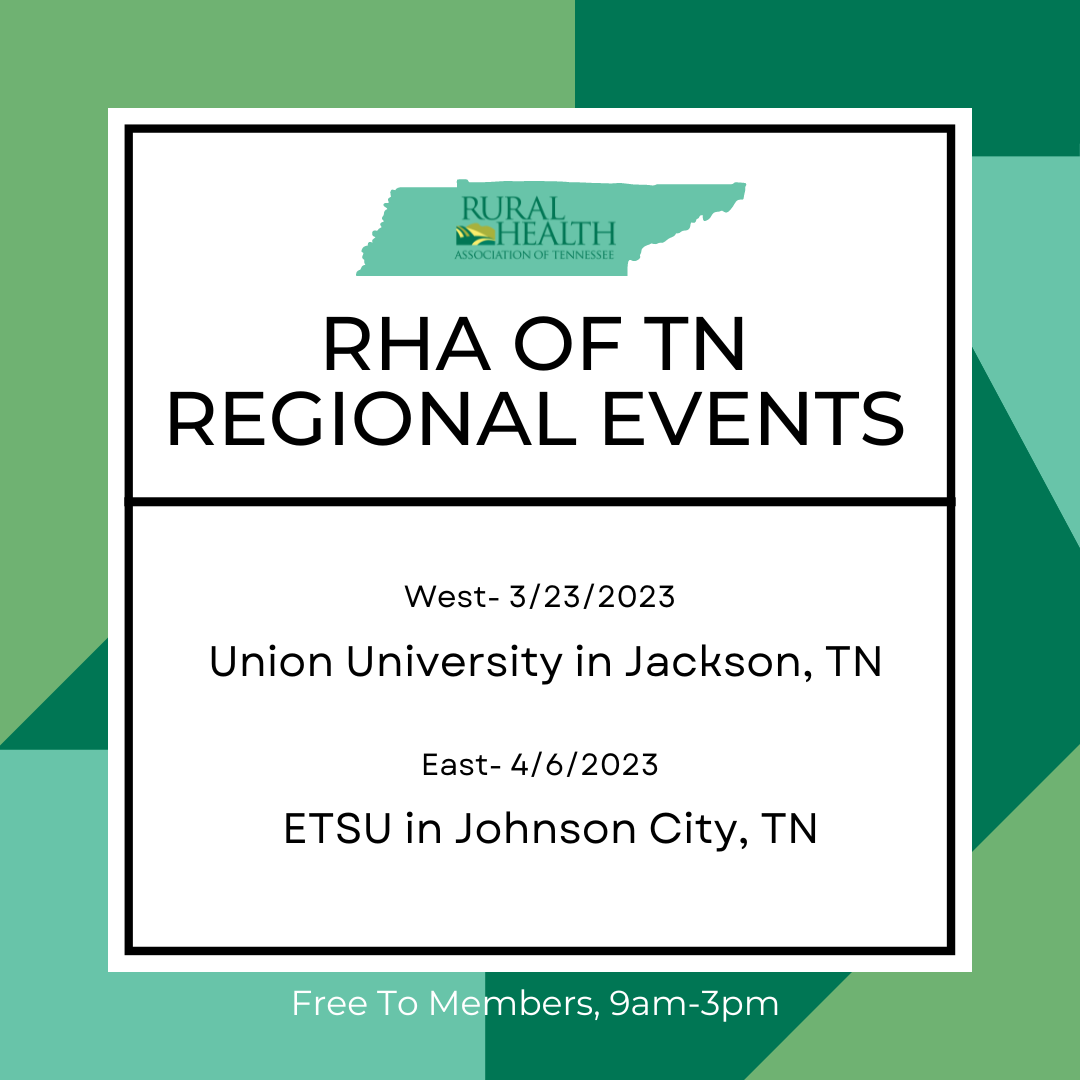
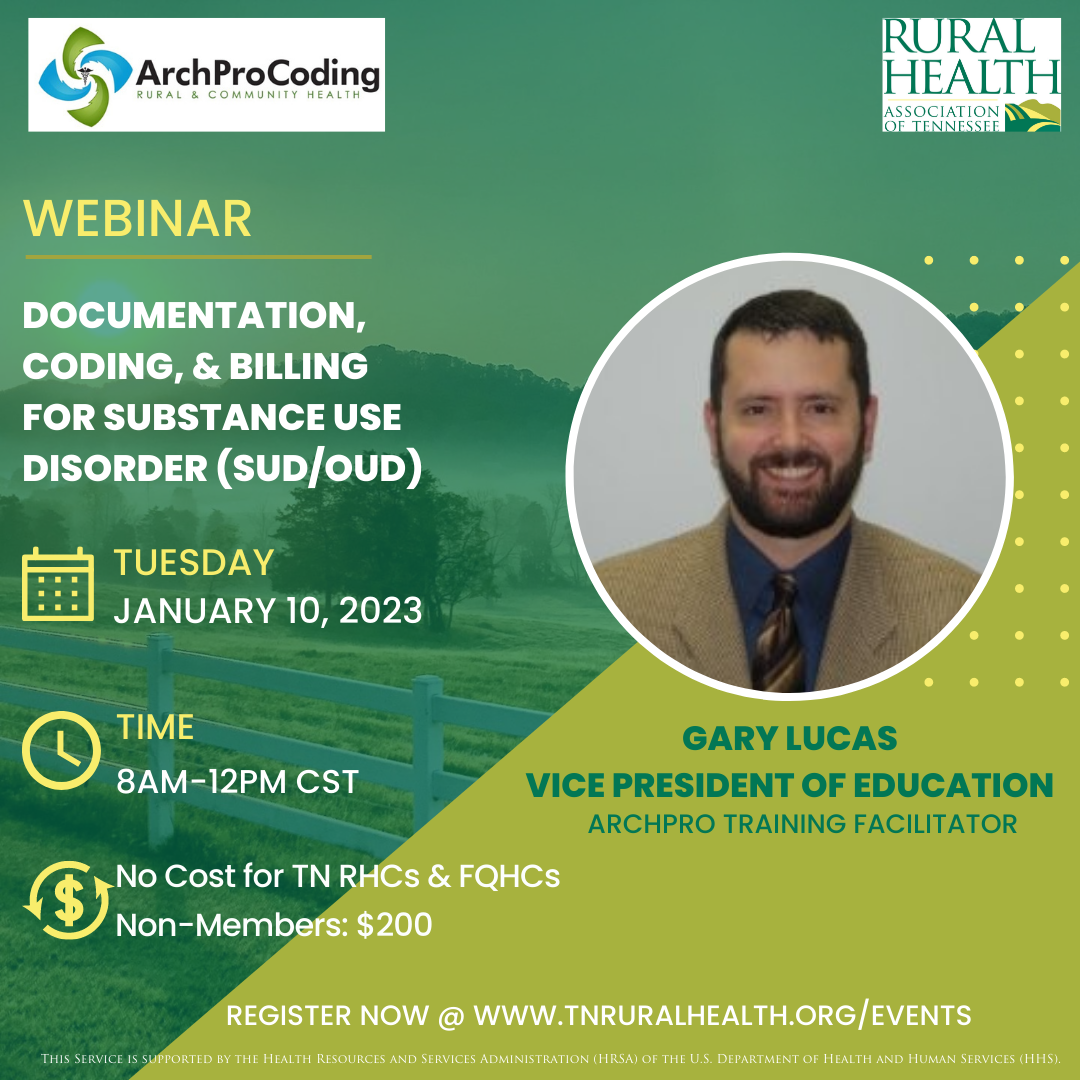 This training includes Rural Health Clinics (RHCs), Federally Qualified Health Centers (FQHCs), Critical Access Hospitals (CAHs), mental health care providers, and primary care organizations that provide SUD/OUD screening, MAT services, and behavioral health services.
This training includes Rural Health Clinics (RHCs), Federally Qualified Health Centers (FQHCs), Critical Access Hospitals (CAHs), mental health care providers, and primary care organizations that provide SUD/OUD screening, MAT services, and behavioral health services.